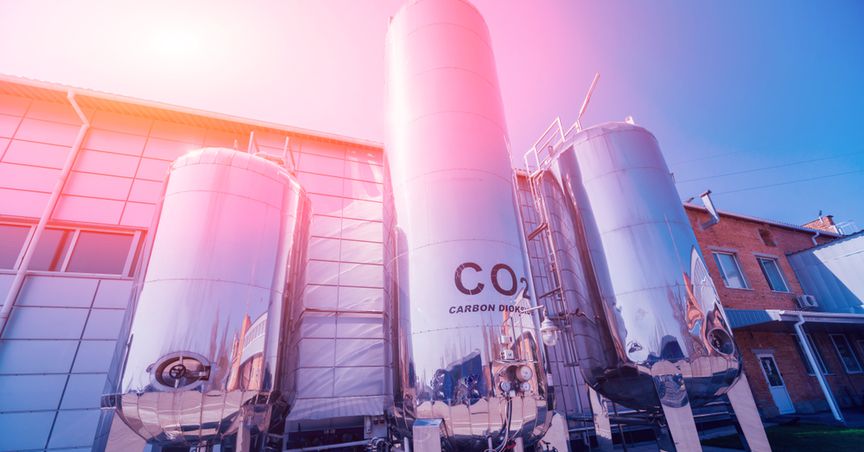Highlights
- Supply chains across various industries disrupted due to CO2 shortage.
- The UK Government and the American firm CF Industries has finalised a deal to restart CO2 production.
- CO2 is crucial for many sectors from the food and drink industry to nuclear power to health care.
The carbon dioxide shortage has recently created a buzz in the UK economy as supply chains have been disrupted due to rising gas prices and many crucial sectors are struggling with the fallout. Recently, a deal has been finalised between the Boris Johnson Government and the American firm CF Industries regarding the restarting of carbon dioxide production at its UK plants in Ince, Cheshire and Billingham, Teesside. According to the Department for Business, Energy and Industrial Strategy, the deal will hold for three weeks, in addition to the process of adaptation of the CO2 market with the rising global gas prices. Business secretary Kwasi Kwarteng said that the move will help avoid the disruption in CO2 supply to several critical sectors.
Why CO2 is crucial
Apart from being a greenhouse gas, CO2 is a byproduct of industrial production which has many applications across several industrial sectors, ranging from preserving the packaged fruits and vegetables to surgical procedures and to even sedating animals while they’re getting slaughtered. The UK is among the largest users of CO2 across Europe.
The food industry, especially the meat sector, is highly dependent on CO2 as it is used to stun pigs and chickens for their humane slaughter. The UK meat processors have also warned that production will be significantly impacted within days if CO2 production isn’t resumed quickly.
In addition to packaging of fresh meats, CO2 is also used for packaging of fresh produce such as salad and baked goods as it helps in the extension of the shelf life of the products by averting bacteria formation.
CO2 also plays a key role in the cooling systems which are used to refrigerate products and is widely used in beer and other fizzy drinks. Dry ice, which helps to keep food fresh for storage and transportation purposes, is also created with the CO2.
As per the food industry, CO2 can also be potentially used for the healthy growth of vegetables in greenhouses as well as for the purification of drinking water. It also plays a vital role in the healthcare industry as the gas is used by surgeons to stabilise body cavities while carrying out operations, and also to freeze off warts and moles.
ALSO READ: Government restarts CO2 production: FTSE stocks to buy now
CO2 vs. Net Zero
Created during the manufacturing of ammonia, alcohol, and fertilisers, and also being released into the atmosphere as power plant emissions, approximately 350m tonnes of CO2 is emitted by the UK every year. The goal of UK for achieving net zero by 2050 aligns with the CO2 shortage, making it appear like good news considering environmental implications.
Nevertheless, to produce CO2 which is pure enough to be used in food packaging and fizzy drinks, specialist equipment is needed to capture the gases, separate them, and then purify them. In the UK, mostly chemical companies, rather than fossil fuel power plants, have all the necessary resources for the production of food-grade CO2.
ALSO READ: Efficacy of a net-zero target
UK’s CO2 shortage
Until recently, two fertilizer plants in the north of England were relied upon for fulfilling 60% of UK’s total CO2 requirement. This was the reason that CF Industries’ decision to shut down its plants came as a shock to the UK.
Approximately 20% of CO2 is imported by the UK, majorly from plants in the Netherlands and Scandinavia. Nevertheless, the European firms are also being impacted by the rising energy prices. The remaining 20% is produced by other plants in the UK.
Way forward
Research is being conducted by the Department for Environment, Food and Rural Affairs regarding the alternative ways of stunning animals after the 2018 CO2 shortage which created similar supply chain issues. According to studies, low atmosphere pressure stunning (LAPS) can be a potential alternate.
The brewers are also using a new technology through which they capture, and store CO2 produced during the fermentation process, and then reuse it later to carbonate beer. Studies are also going on regarding how to store CO2 captured from power plant emissions beneath the North Sea.
ALSO READ: Why is UK running short of Carbon Dioxide?




